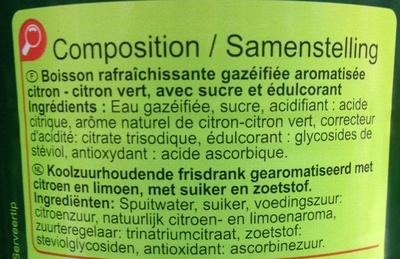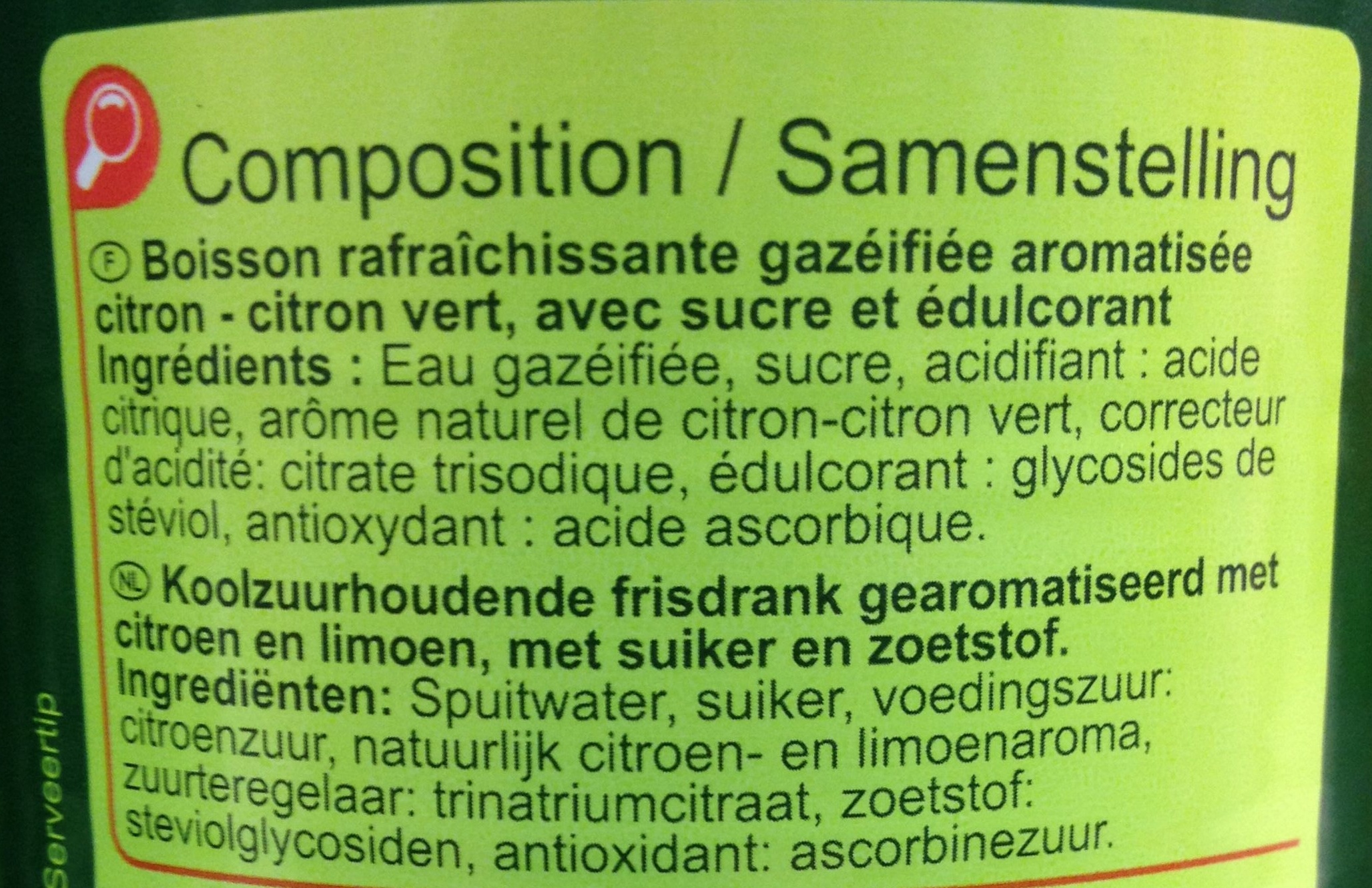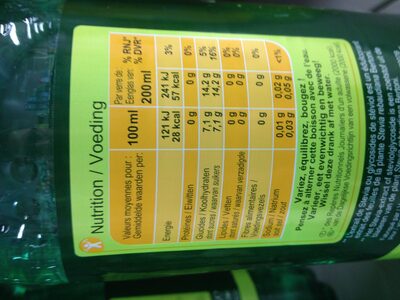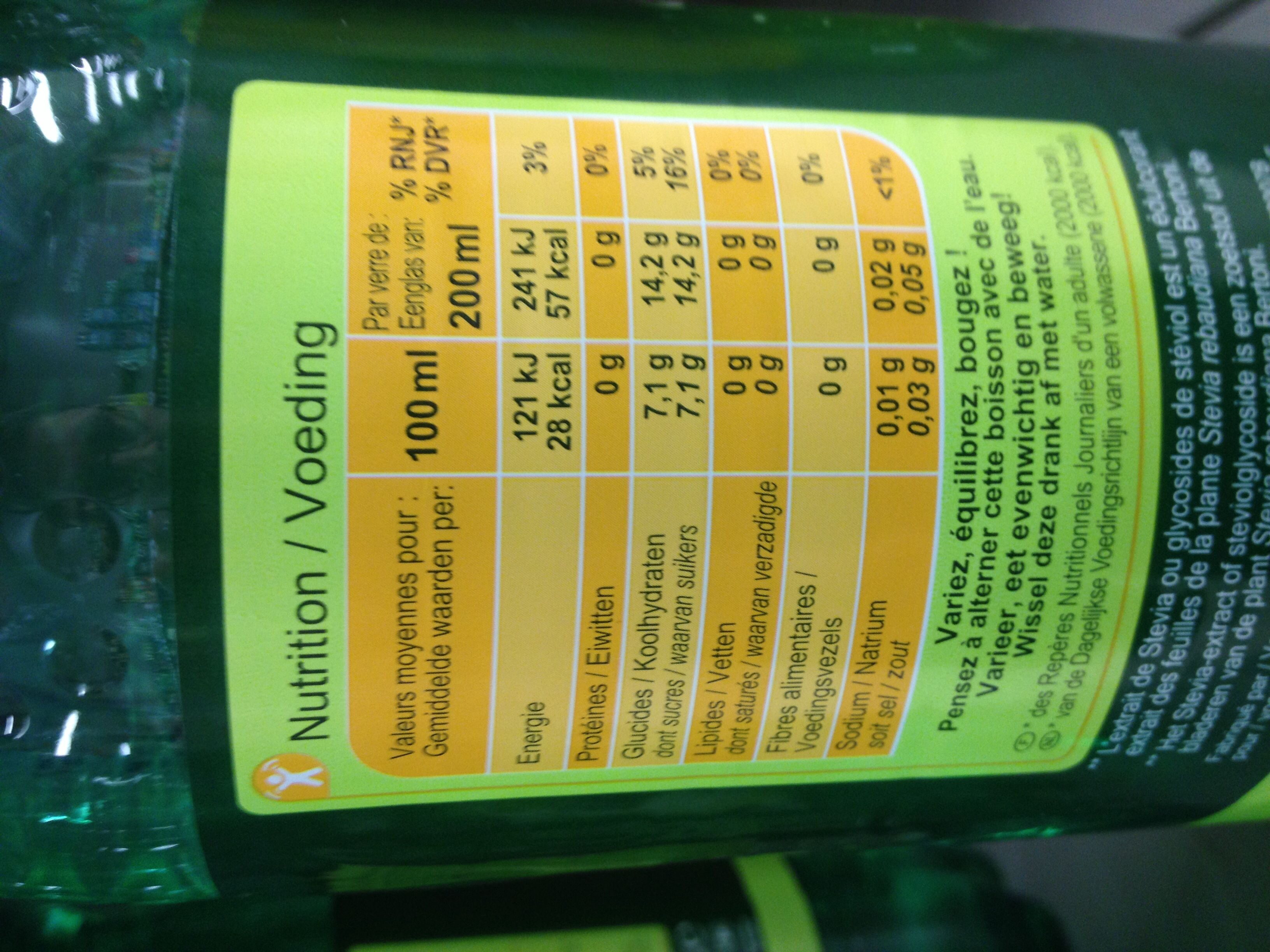Saveur Lemon Lime* - Carrefour - 1,5 l
This product page is not complete. You can help to complete it by editing it and adding more data from the photos we have, or by taking more photos using the app for Android or iPhone/iPad. Thank you!
×
Some of the data for this product has been provided directly by the manufacturer Carrefour.
Barcode: 3560070103294 (EAN / EAN-13)
Common name: Boisson rafraîchissante gazéifiée aromatisée citron - citron vert, avec sucre et édulcorant.
Quantity: 1,5 l
Packaging: Plastic, it:bottiglia pet
Brands: Carrefour
Categories: Beverages, Carbonated drinks, Sodas, Lemonade, Sweetened beverages
Labels, certifications, awards:
No preservatives, Green Dot, Made in France
Producer: Fabriqué en France par EMB 72007B (M) et EMB 69278 (G) pour Interdis.
Traceability code: EMB 69278 - Genay (Rhône, France), EMB 72007B - Ardenay-sur-Mérize (Sarthe, France)
Stores: Carrefour Market, Carrefour, carrefour.fr
Matching with your preferences
Environment
Packaging
Transportation
Other information
Other information: * Saveur citron-citron vert 1,5Le Limonade avec sucre et édulcorant Arôme naturel de citron - citron vert Sans conservateur
Preparation: Servir frais.
Conservation conditions: Avant ouverture, conservez votre bouteille dans un endroit propre, sec et frais à l'abri de la lumière. A consommer de préférence avant le / N°Lot : voir la date indiquée sur la bouteille. Après ouverture, conservez-la au réfrigérateur et consommez-la dans les 3 jours.
Customer service: Interdis - TSA 91431 - 91343 MASSY Cedex - France
Report a problem
Data sources
Product added on by agamitsudo
Last edit of product page on by quechoisir.
Product page also edited by autorotate-bot, carrefour, chiara-dimaria89, driveoff, ecoscore-impact-estimator, kiliweb, openfoodfacts-contributors, org-carrefour, packbot, roboto-app, spotter, yuka.R0tVOENvRmF2YUVSdThZT3d3UGM4ZXBibm9PbVhWaVROZlU0SUE9PQ.










